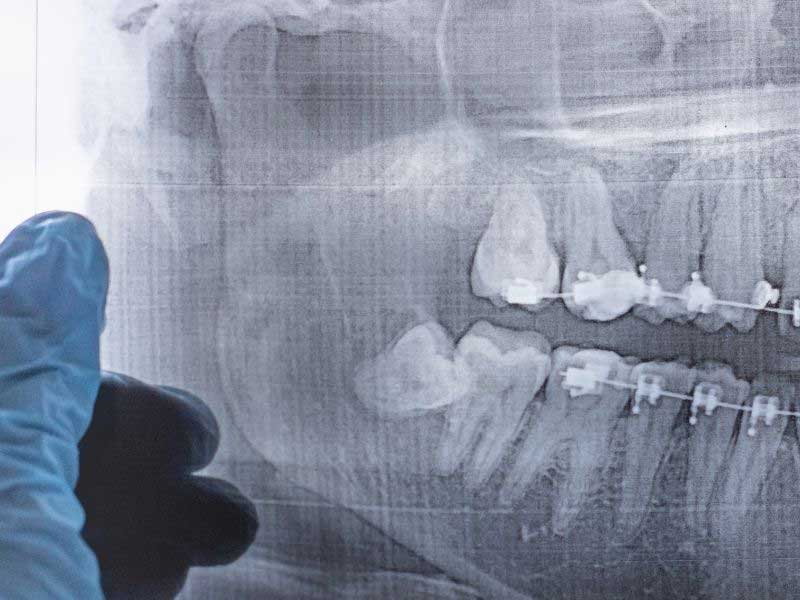Wisdom Teeth Removal and Recovery

Healthy wisdom teeth can be left in place if they’ve fully emerged through the gum line in their correct position and you can clean them properly. But this is often not the case. Because of lack of room, wisdom teeth frequently remain embedded within the gum, only partially emerge, or grow in at a skewed angle and crowd other teeth. When this happens, wisdom teeth need removing. Oral surgeons in Des Moines extract wisdom teeth to rectify immediate problems or as a preventive measure to avoid future complications. You can find out in this blog post what you need to know about wisdom teeth removal and recovery.
Diagnosing Wisdom Teeth Issues
Early diagnosis and treatment are important for an optimal outcome of wisdom teeth removal. Des Moines oral surgeons examine the mouth with the help of X-rays to diagnose existing issues with wisdom teeth and predict likely future problems. This is generally done when the patient is in their mid-teens.
How Are Wisdom Teeth Removed?
How wisdom teeth are extracted depends on the condition of the teeth. When a wisdom tooth has fully erupted through the gum, removal is straightforward – similar to a routine tooth extraction with forceps. If a wisdom tooth has become rooted in jawbone, a surgical procedure may be necessary to remove it piece by piece. This involves making an incision in the gum to facilitate tooth extraction. Some jawbone tissue may need to be drilled out too. Oral surgeons in Des Moines minimize disturbance to bone structure in order to optimize long-term oral health.
The Surgical Wisdom Tooth Extraction Procedure
After anesthetic has been administered, the surgical wisdom tooth removal process entails:
- Cutting into the gum to expose the tooth and underlying bone.
- Removing bone obstruction to the tooth root.
- Extracting the tooth – in sections if necessary.
- Cleaning debris from the tooth and bone.
- Replacing tissue and suturing the extraction site.
A dressing may be applied to control bleeding, and you may be prescribed medication to manage post-surgery discomfort.
Anesthesia Options for Wisdom Teeth Removal
Various types of anesthesia are used for wisdom teeth removal. Local anesthetic to numb the area is sufficient in most cases. This ensures a pain-free procedure although you may feel pressure on your teeth.
Other options include:
- Intravenous (IV) sedation. This entails injecting a sedative into a vein. It relaxes you and alters your state of consciousness. Afterward you have little if any memory of the procedure.
- A general anesthetic to induce loss of consciousness. This may be recommended if the procedure is particularly difficult or you have dental anxiety.
Recovery After Wisdom Teeth Removal
Healing after wisdom teeth removal is a gradual process but you should see signs of improvement in your recovery day by day. Recovery time varies from person to person but usually takes a couple of weeks, depending on the complexity of the procedure and how much damage the problem had caused.
Mild discomfort and swelling are usual the first few days after extraction. This can be controlled with over-the-counter anti-inflammatory medication such as ibuprofen, or with medication prescribed by your dentist. Many patients return to work a few days after wisdom teeth removal, as long as their job doesn’t involve vigorous activity. There are several things you can do to ease discomfort and help the healing process after wisdom teeth extraction.
Wisdom Teeth Removal Recovery Timeline
Recovery after wisdom teeth extraction usually follows a timeline like this:
- First 24 hours - Formation of blood clots.
- Two to three days - Swelling of the mouth and cheeks starts to diminish.
- After a week - Stitches are removed, unless you had dissolvable sutures.
- Seven to 10 days - Jaw soreness and stiffness should disappear.
- Over two weeks - Any facial bruising should heal.
Are There Any Risks with Wisdom Teeth Removal?
As with any of surgery, wisdom teeth removal carried certain risks. These risks are, however, usually small. They include infection or slow healing – more likely if you smoke during recovery. There’s also a risk of nerve damage, which may cause a tingling or numbing sensation in the mouth. This is usually temporary. A further possibility is dry socket. This condition develops when blood fails to clot properly in the socket of a tooth that’s been extracted. The empty socket results in an aching or throbbing pain in the gum or jaw, similar to toothache. It can also produce a bad smell or taste. If you had general anesthetic for the wisdom teeth removal procedure, this carries some additional risks, but complications are rare.
How Do You Know Your Wisdom Teeth Need Extracting?
In most cases, signs that wisdom teeth need to be extracted become apparent during the late teens or early 20s.
These symptoms include:
- Pain in the back of the mouth.
- Feeling generally unwell.
- Unpleasant taste in the mouth.
- Bad breath.
- Jaw pain, stiffness, or swelling.
- Difficulty opening your mouth.
- Inflamed gums that may cause swelling and/or bleeding.
- Sinus problems.
Even when wisdom teeth are causing no immediate symptoms, they may do so later when removal can be more complicated.
When Should Wisdom Teeth Be Removed?
Individuals of any age can have troublesome wisdom teeth removed. But it’s better to get wisdom teeth extracted when you’re younger. Wisdom teeth removal is usually recommended from the ages of 18 to 24, when the jawbone and tooth roots haven’t fully developed. This typically makes tooth extraction a simpler procedure, with faster recovery and less risk of complications. If a tooth root and underlying bone are more developed, it can be harder to manipulate the tooth during the extraction procedure.
What Happens if Wisdom Teeth Aren’t Removed?
Besides pain, various complications can arise if problem wisdom teeth aren’t extracted. These include:
- Increased risk of cavities, infection, and gum disease.
- Orthodontic complications resulting from crowded teeth.
- Compressed sinuses caused by the roots of upper wisdom teeth, causing inflammation, congestion, and headaches.
A wisdom tooth that’s trapped within the jaw (impacted) can result in a cyst – a sac of fluid that can damage jawbone, gum tissue, and the roots of other teeth. A wisdom tooth that only partially emerges through the gum can lead to a bacterial infection called pericoronitis. Wisdom teeth that come in crooked can permanently damage adjacent teeth and affect bite alignment – how the upper and lower teeth come together.
Further issues that may develop include:
- A tumor – a solid mass of tissue.
- Abscess – a painful accumulation of pus.
- Cellulitis – bacterial infection in the tongue, throat, or cheek.
Wisdom Teeth Removal by Des Moines Oral Surgeons
As specialists in oral and maxillofacial surgery, Des Moines Oral Surgeons PC can perform even the most complex wisdom teeth removal procedures. Our oral surgeons are also trained in all aspects of anesthesia and sedation and are licensed to administer general anesthetics.
Contact us if you’re having problems with your wisdom teeth or would like to know about wisdom teeth removal and recovery.








